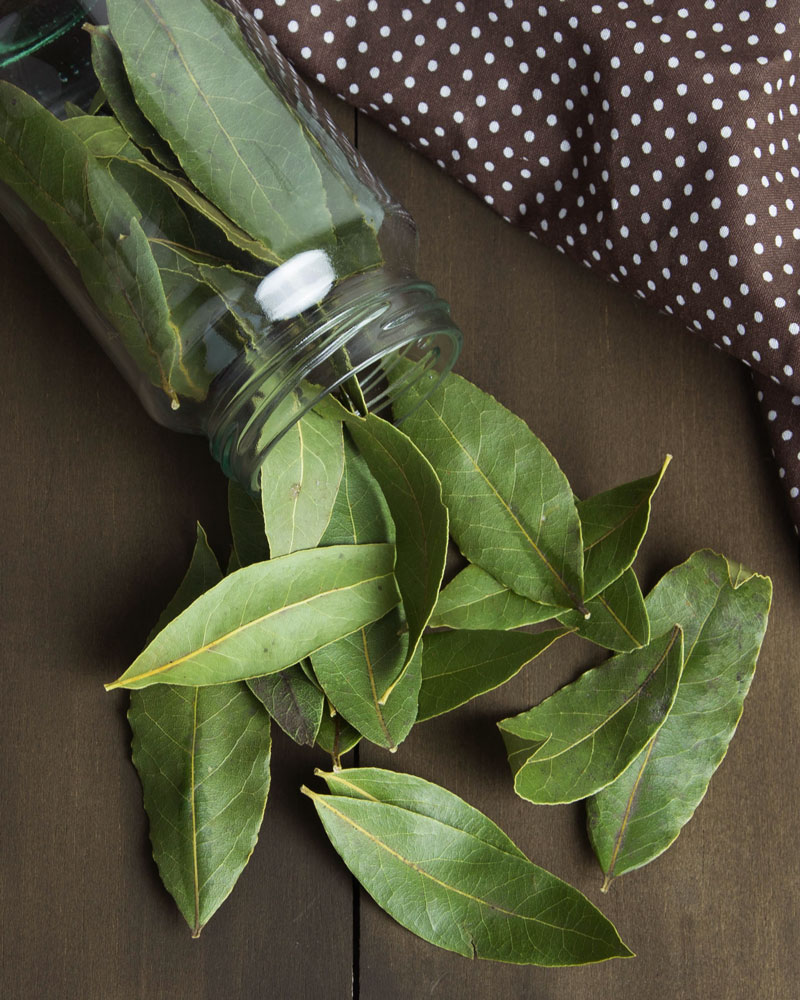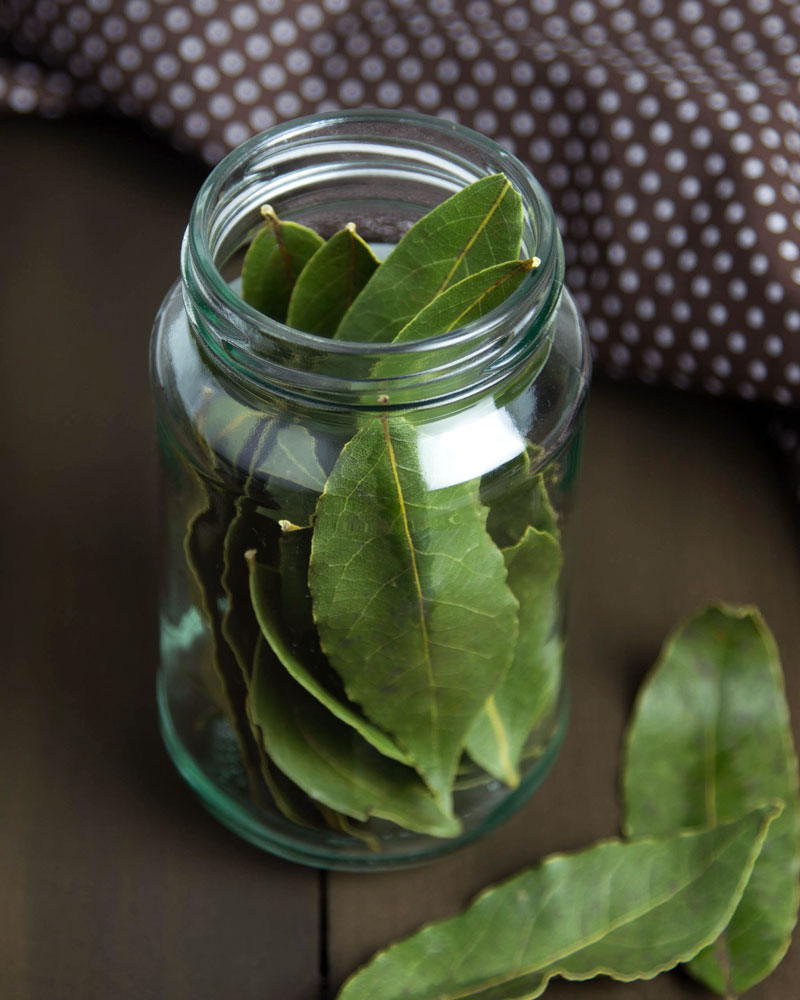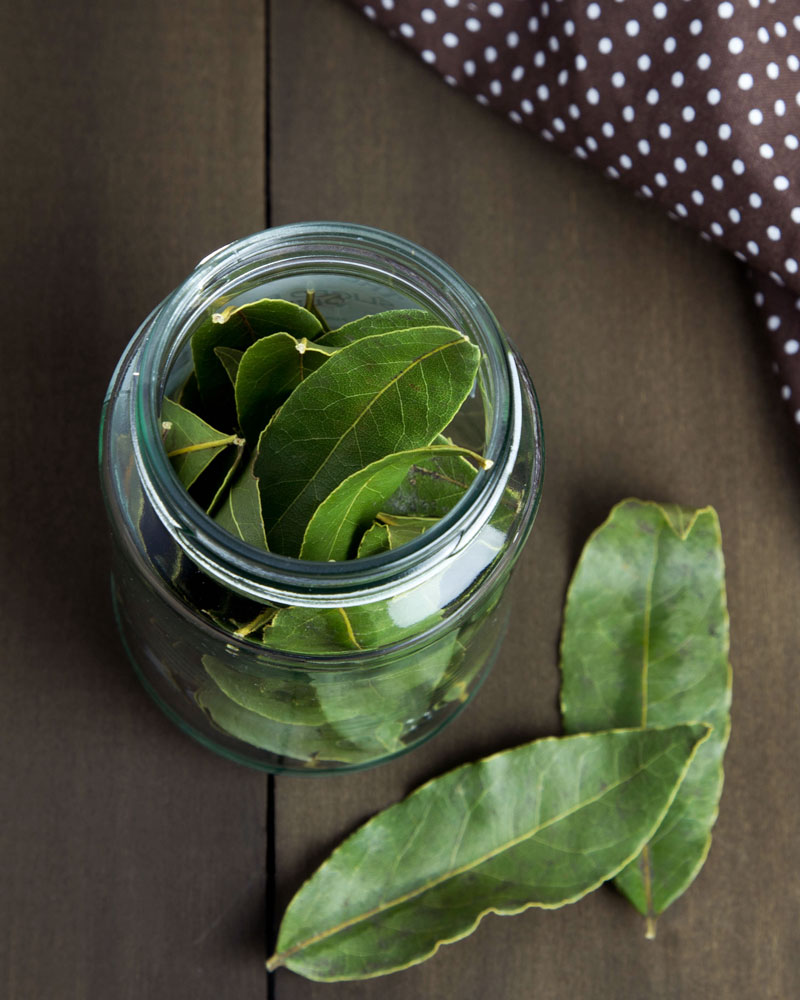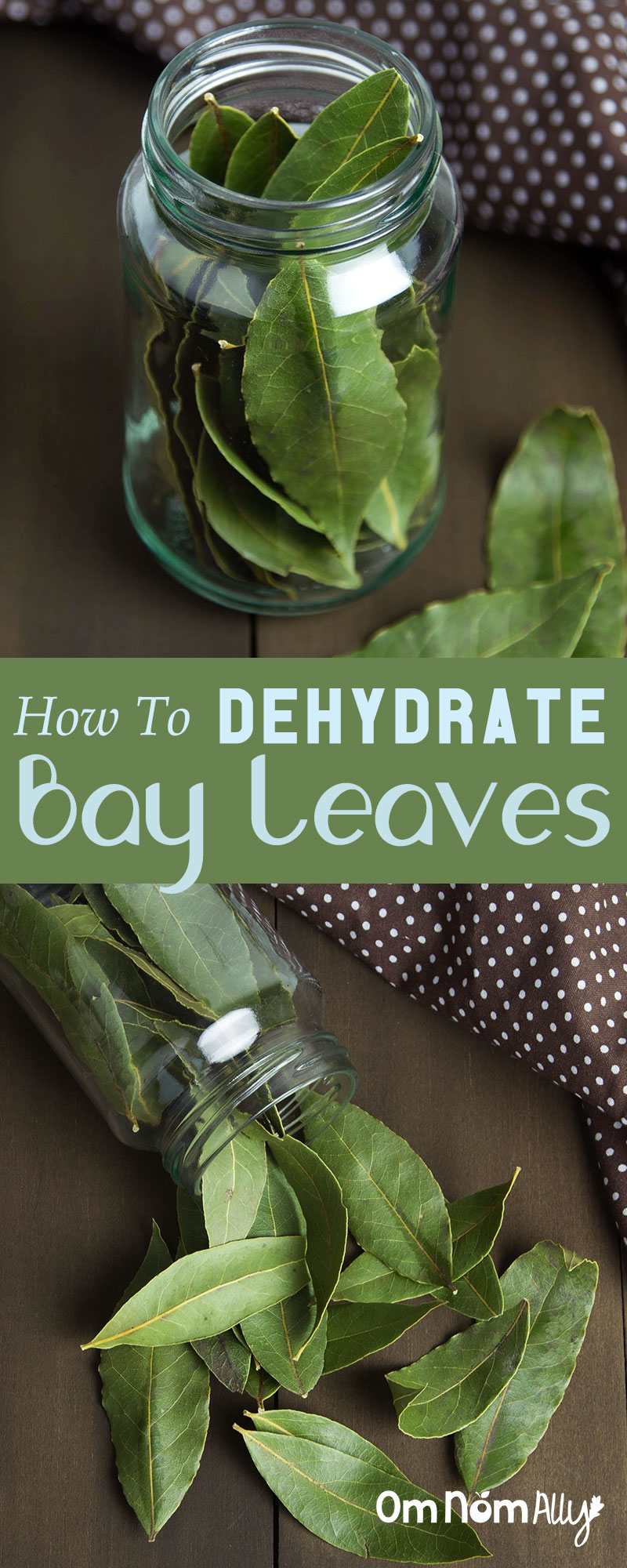
Until recently I didn’t really have a need to dehydrate bay leaves as I had a bay tree in the backyard. More like a baby shrub really, in a large terracotta pot. Bay is probably my all-time favourite herb and it gets the most mileage out of any herb or spice in our kitchen. Then, as often happens in my little kitchen garden, I awoke one morning to find my bay completely stripped bare and the whole pot laying on it’s side with a massive crack in the trunk. Dead. Gone. Possums had struck again.
Goodness knows what possums wanted with my poor little bay, it’s not like they are cooking up some soups in our roof at night (or are they??). They eat everything else out there eventually though, so all I’ve pretty much got left is a dozen Aloe vera plants, a rosemary bush and some strawberries (for now!). Luckily I now grow some herbs on our inside windowsill with the microgreens and sprouts or I’d have no greenery to call my own anymore. I can’t claim this post is all from my own hard work then, as the leaves I used for this instructional on how to dehydrate bay leaves all came from Kam’s workplace at the herb farm. Thanks honey!

After the solemn passing of my beloved bay tree I did originally buy a container of the dried stuff… and it’s not fantastic. Crumbly, beige in colour and with a strong menthol smell, I’ve obviously been spoilt by having my own tree for so many years. My discovery was that the dried leaves are no way near as flavourful when cooking and had a completly different aroma of my own homegrown. I ended up using about 8 leaves in a soup recipe where I would normally use 2-3 fresh to bring out the savoury qualities of all the ingredients used. I actually ended up throwing them out – I’m such a whinger, right? Luckily, Kam’s work on-sells a lot of bay leaves to the retail market, so I ended up with bunch of bay so fresh that the leaves were still on the stalk and all!
If you’re lucky enough to have your own tree you’ll probably never need to dry your bay leaves – just use them fresh for adding the strongest aromatic qualities to your meals. However, If you ever get gifted some fresh on the branch from a friend, or want to gift some yourself to another foodie you’ll want to preserve them so they last as long as possible. Air drying is absolutely possible in this situation and bay leaves will take a couple of weeks to dry out when tied up to hang in a pantry of cupboard. My favourite method however is to dehydrate bay leaves for a while to dry out – it’s definitely faster and I find it even preserves the glorious green colour of the bay leaves a bit better as well.

Dehydrating bay leaves is an easy task, as all you need to do wash leaves and branches (if still attached), pluck leaves and lay in a single layer on mesh lined dehydrator trays. I don’t even both to pat them dry, just giving them a quick shake off or drain in colander for a few minutes. Otherwise pat dry with a clean tea towel or paper towel before moving to the dehydrator trays.
All the instructions are available at the end of this post to print of save and you’ll discover that the total drying time takes about 4-6 hours at 46C/115F. I would recommend checking on the batch after 4 hours as the leaves are ready when they have curled and lost some of their colour, feel brittle and ‘snap’ when bent. At that point they can be loosely packed into an airtight container and placed in the pantry for long-term storage and can be used in exactly the same way as fresh, or standard dried leaves. Didn’t I tell you how easy it was to dehydrate bay laves? What recipes will you use your freshly dried bay leaves in first? Make sure you tell me in the comments!
xx Ally

- Fresh bay leaves
- Wash leaves and branches (if still attached), then pluck off leaves
- Lay in a single layer on mesh lined dehydrator trays
- Dry for 4-6 hours at 46C/115F, or until leaves are curled and have lost some of their colour, feel brittle and 'snap' when bent
- Once dried, transfer from dehydrator to sealed containers and store in cool, dark place
Hello. I have a tree I started from a 6 inch sweet bay tree. It is now 15 ft high and always so flush with new bright leaves that I have trouble picking out the best leaves. Your picture of them in a jar is the best example I’ve seen and it really makes me want to get them into my dehydrator. I’m not sure but I might have the only sweet bay plant in the ground on Whidbey island.
If you’ve got the only tree on the island then I think you’re a very lucky man indeed!
I can’t recommend enough the benefits of dehydrating some bay leaves, I use them in just about every recipe to bump up the flavour and would be lost without them 🙂 Thanks for the comment Richard!
I have a reasonably large bay tree in my garden. I usually freeze bay leaves or preserve them in salt but, having chanced upon your post, I decided to give this a go. After 6 hours the leaves are dried yet still nice and green. I tore one and it still smells fresh. Thank you for this lovely post.
It’s my pleasure EJ, I’m glad the bay leaves turned out great!
I just pluck them off the branch and store in a zip lock bag in the vegetable drawer in the fridge. They keep for months.
Thanks for posting this! I found it while trying to figure something out…
I am using a dehydrator. The instructions indicate up to 24 hours at 95 degrees. I let it run thru the evening and overnight. This morning I checked on them and they are curling, are dryer on the two ends of the leaf, but still bend/flexible in the middle. Mine are curled a lot more than your pictures. Ones I buy in the store are not curled at all. Am I doing something wrong?
I wouldn’t say you’re doing anything wrong, the ones in the supermarket aren’t dried in the same way so bother the texture and appearance will differ. If you’re unsure if they are dried through then simply put back in the dehydrator for a few hours until brittle
What’s a dehydration tray?
Hi Melis, that would be the pull outtray in the dehydrator. Have an awesome day!